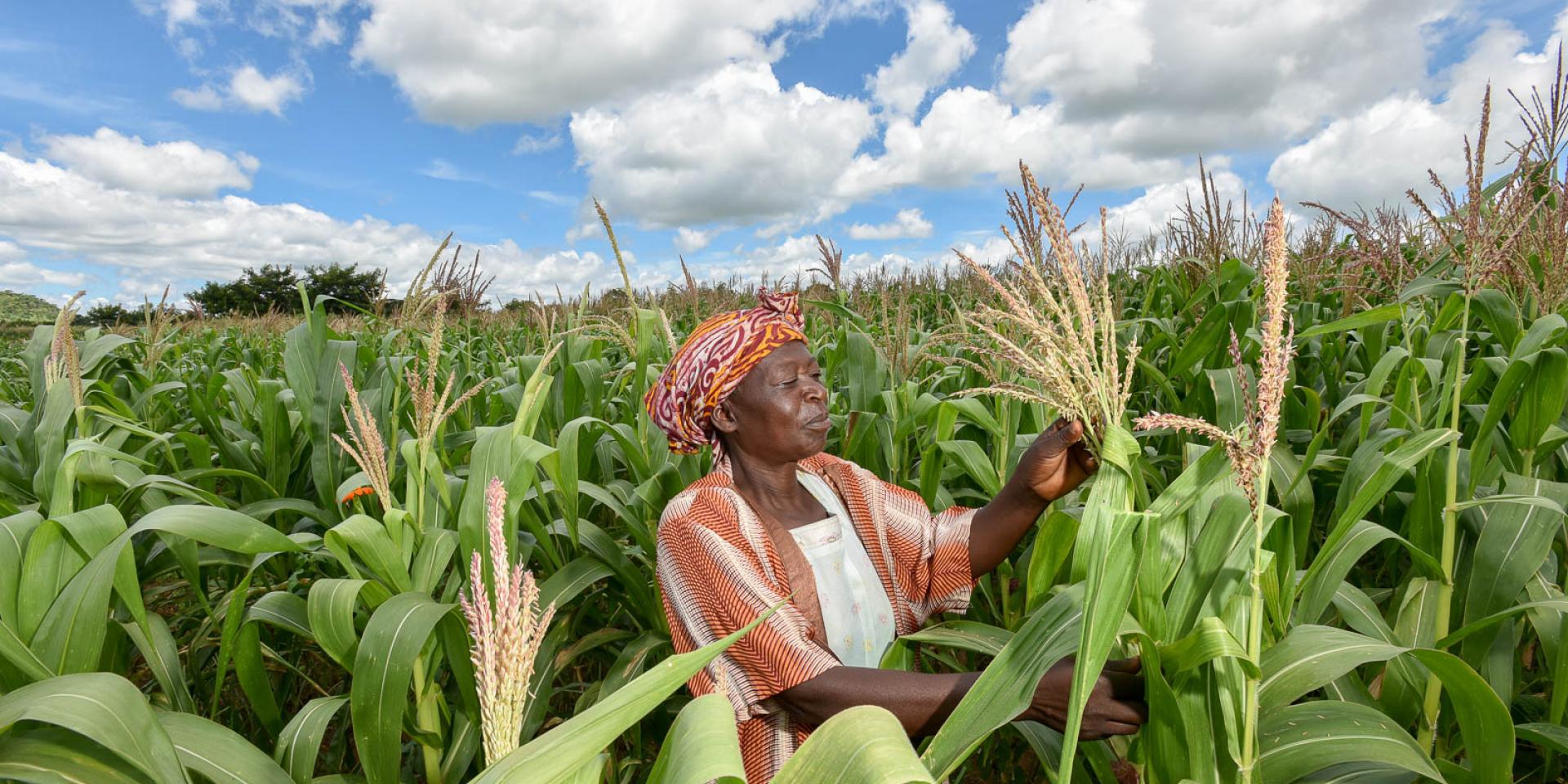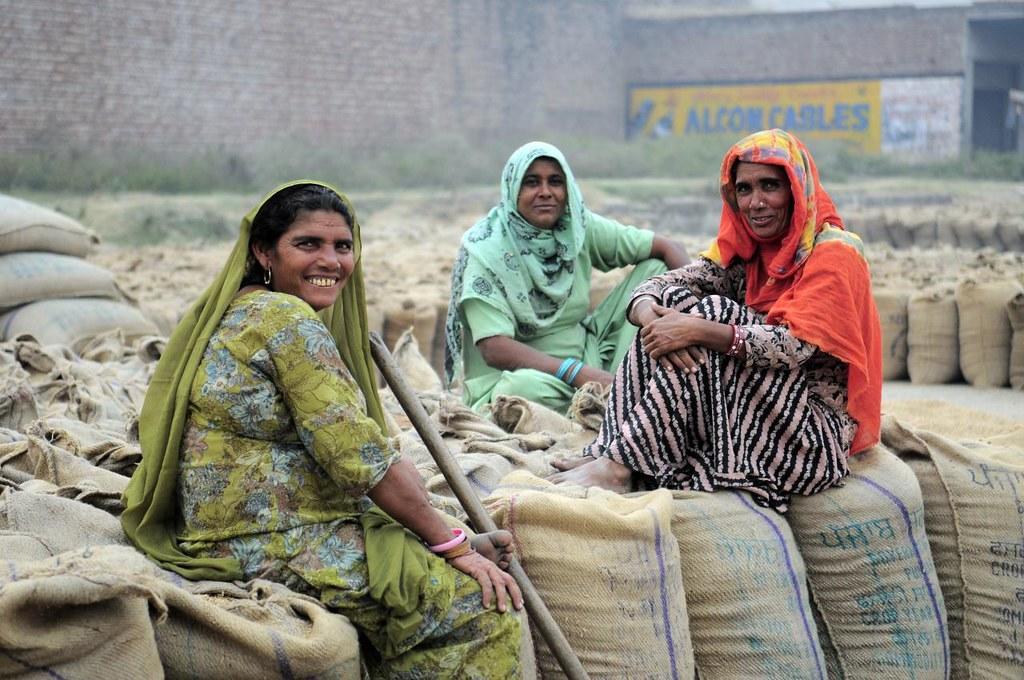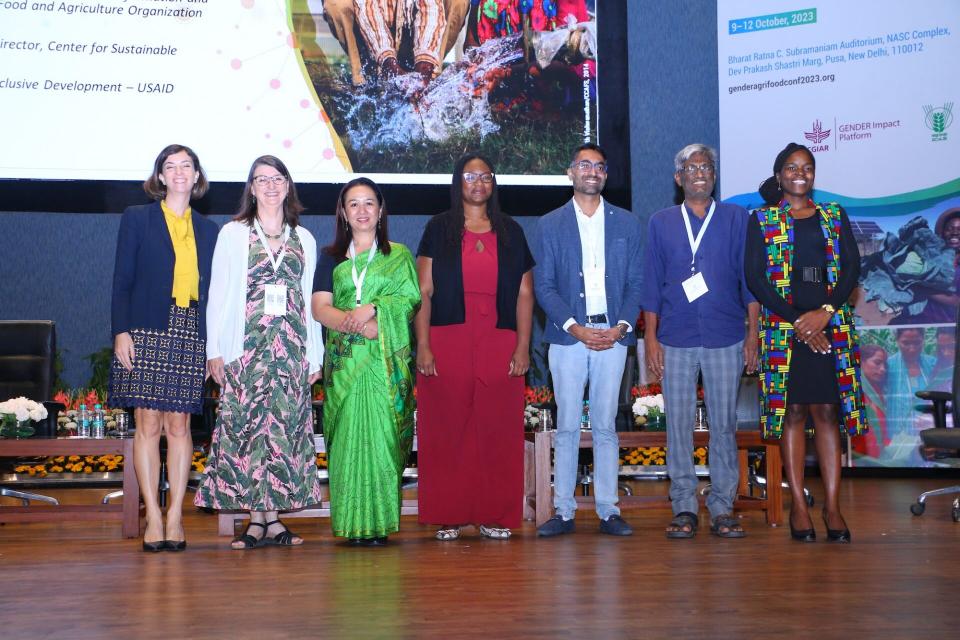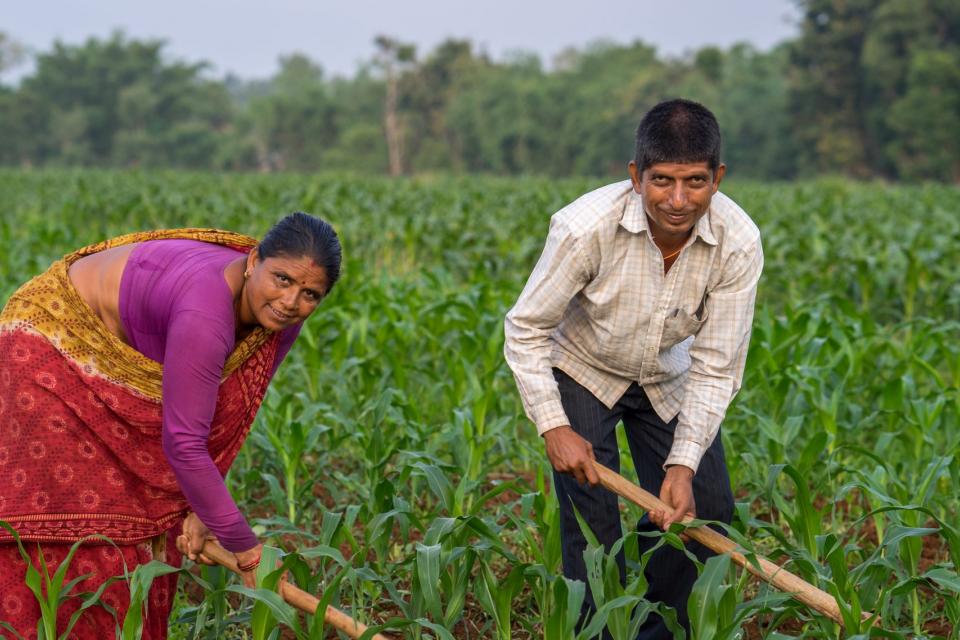How gender matters in a time of crises
 Photo: ©2016CIAT/NeilPalmer
Photo: ©2016CIAT/NeilPalmer
The ‘3 Cs’ of COVID, Climate, and Conflict; plus now the Cost of living, have severe impacts for women. But research can support women and empower them as protagonists of post-shock resilience.
The world is far off track to reach Zero Hunger by 2030. Against the backdrop of the continued impacts of the COVID-19 pandemic, climate change, and conflict in flash points around the world, hunger is on the rise. Between 691 and 783 million people in the world went hungry in 2022 – about 122 million more people than pre-pandemic levels – and a majority of those that went hungry were women.
Gender is intimately linked with crisis. Women tend to be among those most impacted by the compounded crises known as the ‘3 Cs’ – COVID, climate, and conflict. And now a fourth C – cost of living – has contributed to pushing more than 70 million people below the poverty line over the last four years. Women are overrepresented among the poorest households and therefore particularly vulnerable to these pressures.
But women are not one-dimensional victims of crisis. They are also key players, motivators, and innovators in recovery processes, and serve as protagonists of post-shock resilience. Women represented the majority of healthcare workers responding to pandemic outbreaks (and the majority of unpaid and unofficial care workers in homes and communities), frequently act as peacebuilders in conflict zones, and lead community initiatives coordinating mutual aid when official support systems are slow to respond.

Photo: Alliance of Bioversity International and CIAT//NeilPalmer
Women are also on the front lines of the ‘hunger pandemic.’ Women are heavily engaged in the agrifood sector on a global level, and in many countries this serves as a more important source of livelihood for women than men. Despite their high levels of engagement and the essential nature of their contributions to food security at all levels, women’s roles in agriculture tend to be marginalized and characterized by poor working conditions. For example, compared to men in agrifood systems, women’s work is more irregular, informal, part-time, low skilled, drudgerous and labor-intensive, overall rendering women more vulnerable.
Furthermore, around the world, gender roles prescribe women as the food provisioners and cooks for families, but at the same time, women are also the most likely to go hungry. Women have less food than men in every region in the world even though they are the ones feeding the world. Reflecting this intimate correlation between gender and food security, research shows that “the more gender inequality there is in a country, the hungrier people are.” And gender equality is on the rise.
Around the world, progress on gender equality and poverty alleviation are backsliding, and the consequences of the 4 Cs – which have aggravated inequality – are still unfolding. Four years after the onset of the COVID-19 pandemic, it is therefore more important than ever to conduct robust research on how these compounded crises continue to impact development, and how social inequalities impact and are impacted by shocks. A deeper understanding of these interrelations will not only help shape just approaches to resilience and ‘building back better,’ it will also help development initiatives offer adequate safety nets to women and men from vulnerable groups in future shocks and stresses.
CGIAR is at the vanguard of this effort, prioritizing future-looking research on the nexus of agri-food systems, gender, and crisis. The international conference “From research to impact: Towards just and resilient agri-food systems”, hosted in October 2023 by the CGIAR GENDER Impact Platform and Indian Council of Agricultural Research (ICAR), dedicated one of its six themes to this topic. The Alliance led the organization of the event, and Dr. Eileen Nchanji co-led the theme “A gender and social inclusion lens on resilience in the context of climate change, COVID, and other shocks and stresses.” 36 presentations by researchers from around the world shared cutting-edge research
While the scale of the threat to global food security and gender equality outcomes posed by COVID, conflict, climate, and cost of living is daunting, there is a great deal of strong research and action taking place at the grassroots level, much of which is led by the rural women at the center of these crises. With coordinated multi-level support for these agents of change and an effort to bring women leaders from the margins to the center of the global conversation, we can continue to push the agenda forward for the evidence-based development of just, inclusive, and socially responsible agri-food systems.


